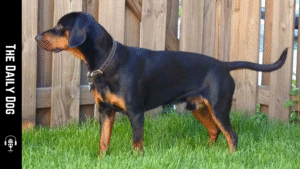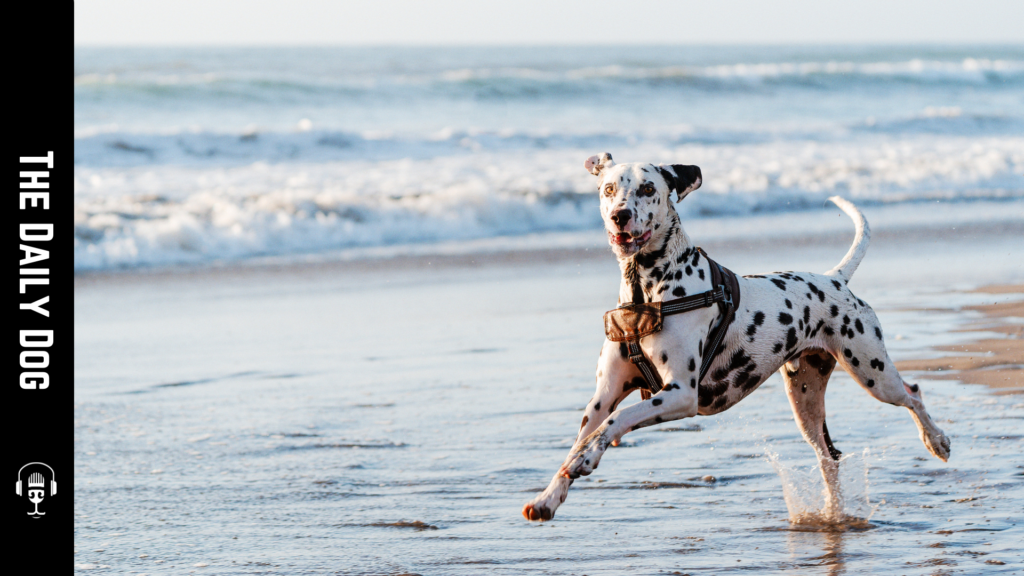The Dalmatian is one of the most recognizable dog breeds in the world, known for its striking appearance and vibrant personality. With its distinctive black or liver-spotted coat, this breed has captured the hearts of dog lovers for centuries. In this article, we will explore the history, characteristics, training needs, health concerns, and overall temperament of the Dalmatian, providing you with a thorough understanding of this fascinating breed.
A Brief History of the Dalmatian
The origins of the Dalmatian can be traced back to the region of Dalmatia in Croatia, from which it derives its name. Historically, these dogs were used for various purposes, including as carriage dogs, guard dogs, and even firehouse mascots. Their strong, athletic build made them excellent companions for horse-drawn carriages, where they would run alongside to protect the horses and the vehicles.
Dalmatians gained significant popularity in the 19th century, especially in England and America, where they became associated with firehouses. Firefighters appreciated the breed for its ability to run alongside fire engines and help clear the way. This historical connection has made the Dalmatian a symbol of bravery and loyalty.
Physical Characteristics
Dalmatians are easily identifiable due to their unique coat pattern. Their sleek, short coat is predominantly white, adorned with distinctive black or liver-colored spots. Each dog boasts a unique pattern of spots, making every Dalmatian one-of-a-kind.
In terms of size, Dalmatians are medium to large dogs, weighing between 45 to 70 pounds and standing 19 to 24 inches tall at the shoulder. Their athletic build and strong muscles give them an impressive appearance, complementing their energetic nature.
Temperament and Personality
Dalmatians are known for their lively and outgoing personalities. They are intelligent, energetic, and affectionate dogs that thrive on human interaction. These dogs are excellent family pets and are particularly good with children, often forming strong bonds with them.
However, their high energy levels mean that Dalmatians require regular exercise to keep them happy and healthy. They enjoy activities like running, playing fetch, and participating in agility training. Without adequate physical and mental stimulation, they may become bored and exhibit undesirable behaviors.
Training and Socialization
Training a Dalmatian can be a rewarding experience, but it requires consistency and patience. These dogs are intelligent and eager to please, which makes them relatively easy to train. However, they can also be stubborn at times, so positive reinforcement methods are recommended.
Early socialization is crucial for Dalmatians, as it helps them develop into well-rounded adults. Exposing them to various environments, people, and other animals will ensure they are comfortable and confident in different situations. Puppy classes and group training sessions can be beneficial for socialization and obedience training.
Health Considerations
Like all breeds, Dalmatians are prone to certain health issues. Responsible breeding practices can help reduce the risk of hereditary conditions, but potential owners should be aware of the following health concerns:
Deafness: Dalmatians are known for their predisposition to congenital deafness. Regular hearing tests can help determine if a dog is affected.
Urinary Tract Issues: Dalmatians are more prone to urinary stones due to their unique metabolism. Providing a balanced diet and ensuring proper hydration can help mitigate this risk.
Hip Dysplasia: This genetic condition can affect Dalmatians, leading to joint pain and mobility issues. Regular veterinary check-ups and maintaining a healthy weight are essential for prevention.
Skin Allergies: Like many breeds, Dalmatians can be susceptible to skin allergies. It’s important to monitor their skin health and consult a veterinarian if any issues arise.
Grooming Needs
Dalmatians have a low-maintenance grooming routine due to their short coat. Regular brushing, ideally once a week, can help minimize shedding and keep their coat healthy. During shedding seasons, more frequent brushing may be necessary.
Bathing should be done as needed, typically every few months or when they become particularly dirty. It’s essential to use a gentle dog shampoo to avoid irritating their skin. Regularly checking their ears, teeth, and nails will also contribute to their overall health and well-being.
Living with a Dalmatian
Owning a Dalmatian can be a fulfilling experience, but it’s essential to consider their needs and lifestyle requirements. These dogs thrive in active households where they can participate in daily activities and exercise.
Space Requirements
Dalmatians adapt well to various living situations, but they do best in homes with ample space to run and play. A secure, fenced yard is ideal, as it allows them to explore safely. If you live in an apartment, regular trips to the park or other open areas will be necessary to ensure they get enough exercise.
Family Compatibility
Dalmatians are known for their friendly nature and
make excellent family pets. They are typically good with children and can be very protective of their family. Their playful demeanor often leads to fun interactions with kids, making them a popular choice for families. However, it’s important to supervise interactions between Dalmatians and young children to ensure safety and prevent any accidental rough play.
Activities and Exercise
Dalmatians are active dogs that require plenty of exercise to stay healthy and happy. A daily routine that includes at least 60 to 90 minutes of physical activity is ideal. Here are some activities that can help keep your Dalmatian engaged:
Walking and Running: Regular walks or jogs are essential. Dalmatians are great running partners and thrive on longer outings.
Fetch: This classic game is perfect for Dalmatians, who love to chase and retrieve. It’s an excellent way to burn off excess energy.
Agility Training: Dalmatians excel in agility courses, which provide both physical and mental stimulation. It allows them to showcase their intelligence and athleticism.
Swimming: Many Dalmatians enjoy water, making swimming a fun and refreshing activity, especially during hot weather.
Interactive Toys: Puzzle toys can help keep your Dalmatian mentally stimulated when you’re not able to give them direct attention.
Nutrition and Diet
A balanced diet is crucial for maintaining your Dalmatian’s health. High-quality dog food that meets their nutritional needs is essential. Look for brands that list meat as the first ingredient and avoid those with excessive fillers or artificial additives.
Dalmatians are prone to urinary issues, so it’s vital to ensure they are well-hydrated. Always provide fresh water and consider incorporating wet food into their diet to help with hydration.
Monitor their weight closely, as Dalmatians can gain weight quickly if not properly exercised or fed. Regular veterinary check-ups can help you determine the best diet for your dog based on their age, activity level, and health status.
The Dalmatian in Popular Culture
Dalmatians have a long-standing presence in popular culture, making them one of the most famous dog breeds. The most notable mention is Disney’s “101 Dalmatians,” which introduced the breed to a new generation of fans. This animated classic highlighted the breed’s playful nature and distinctive appearance, leading to a surge in popularity.
Beyond film, Dalmatians have appeared in various television shows, commercials, and literature. Their association with firefighters and their striking looks have made them a favorite in media, reinforcing their status as beloved companions.
Choosing the Right Dalmatian
If you’re considering adding a Dalmatian to your family, it’s important to do your research and find a reputable breeder. Look for breeders who prioritize health testing and breed standards. Adopting from a rescue organization or shelter can also be a wonderful option and provides a loving home to a dog in need.
When selecting a Dalmatian, take the time to meet the puppy or adult dog and assess their temperament. Ensure that the dog’s energy level matches your lifestyle, and be prepared to invest time in training and socialization.
Conclusion
The Dalmatian is a unique breed with a rich history, captivating appearance, and vibrant personality. While they thrive in active households and require dedicated training and exercise, their loyalty and affection make them wonderful companions. Understanding their needs and characteristics will help you create a loving and fulfilling environment for your Dalmatian.
In summary, whether you’re drawn to their distinct looks or their spirited nature, a Dalmatian can bring joy and excitement to your life. By providing the right care, training, and love, you’ll enjoy many happy years together with this remarkable breed.
We offer a FREE Strategy Call.
Click on the graphic to learn more
Read More


Slovensky Kopov: The Slovakian Hunting and Working Dog With a Rich Heritage








